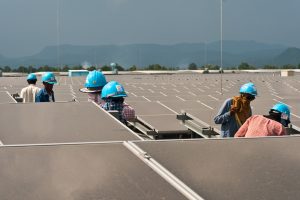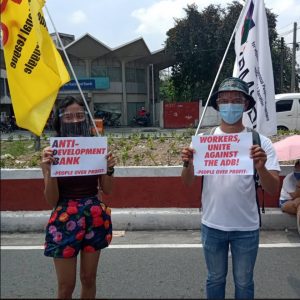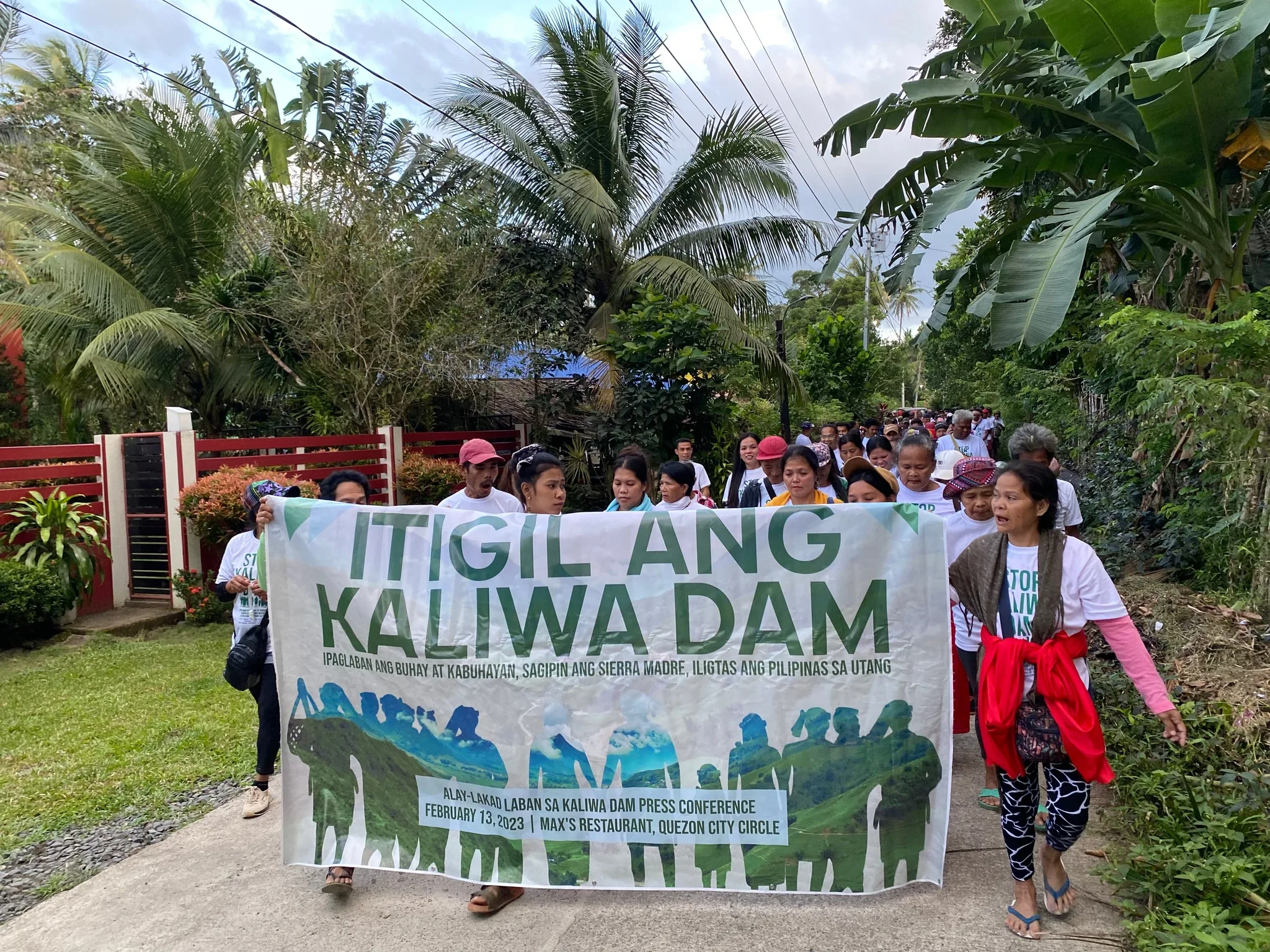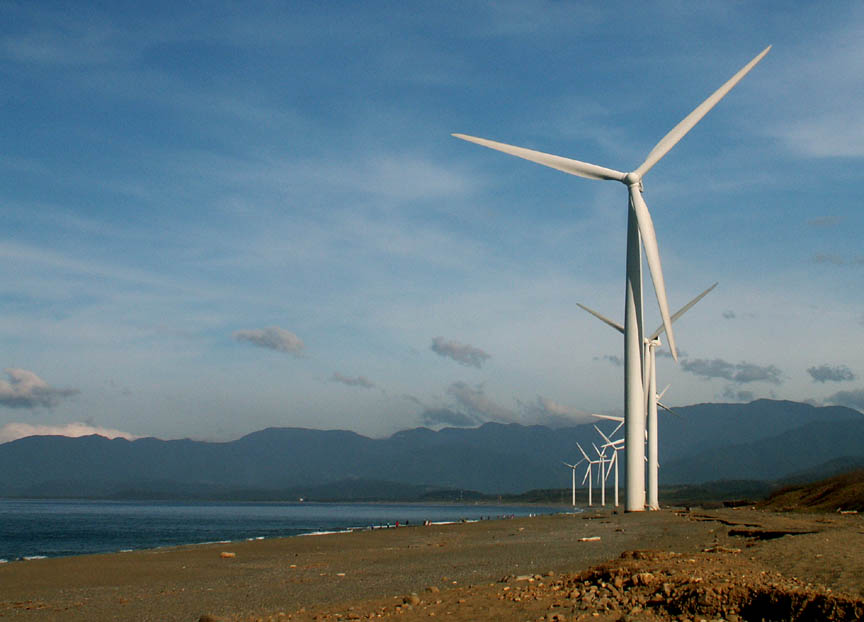This article was originally published in südostasien, a German magazine focused on amplifying voices on and from Southeast Asia on economic, political, and cultural issues. Read the piece in German here.
by Tala Batangan, Reality of Aid-Asia Pacific
Southeast Asia has been touted as an emerging region, with potential for immense economic growth and development. With this, its energy demand has continuously increased by 3% in the last two decades, but the majority of this need is addressed with more fossil fuel power plants. The region is also at the forefront of the climate crisis, as it is subjected to extreme weather events that lead to massive loss of lives, wide-scale displacement and decrease in agricultural productivity. The transition to renewable energy systems has become more urgent than ever.
Development actors have recognized this and have undertaken the necessary steps to provide financial and technical assistance to these countries. However, Official Development Assistance (ODA) flows or aid falls short of donor commitments and remains inadequate to advance progress towards Agenda 2030. In this context, private sector and market-based solutions continue to be promoted by development actors to address the so-called financing and capacity gap for the energy transition. ‘Innovative’ financing modalities and mechanisms have been promoted by multilateral and international finance institutions (IFIs). Upon closer look, these would allow the private sector to finance, implement and manage energy projects, which can accelerate the corporate capture of development that leads to adverse impacts on the region’s labor, development, human rights and the environment.
Private sector’s historic role in the climate and energy crisis
The energy sector is historically one of the main drivers of the climate crisis, as it continues to be the largest contributor of greenhouse gas emissions and enables large-scale production and consumption for the market. This emergency is further exacerbated by centuries of profit-driven activities by large corporations from the global North, built on resource extraction and exploitation of the global South. The industrialization, production and consumption of the global North have led to the dramatic increase in greenhouse gas emissions, with impacts immediately felt by marginalized communities in the South. Energy, while it comes from natural resources and is supposedly a public utility, remains to be controlled and profited from by large corporations, as privatization is pursued by Southeast Asian governments.
Furthermore, energy projects in the region have often been pursued through public-private partnerships (PPPs), as private sector partners claim to have the necessary resources and capacities to undertake these projects. However, in the global South, energy PPP projects often lead to the entry of foreign investors to gain profit, while assigning higher costs for governments and citizens, due to corruption, hidden costs and weak currencies. The lack of corporations’ transparency and accountability, which is enabled by weak state regulatory mechanisms, leads to environmental degradation and gross human rights violations. As can be seen with the Kaliwa Dam and the Gen-ed Hydroelectric Power Projects in the Philippines, and the Central Java Power Project in Indonesia, energy PPPs often lead to the widespread displacement, loss of livelihoods, harassment, biodiversity loss and disturbance of religious and cultural practices, especially of Indigenous Peoples and rural communities.

Lopburi Solar Power Project. / Asian Development Bank
Green bonds as new debt shackles
Using the same reasoning for PPPs, multilateral institutions and IFIs have promoted alleged ‘innovative’ modalities of financing to address the so-called ‘financing gap’. Modalities like thematic bonds are further promoted under SDG target 17.3 or the collective mobilization of financing from multiple sources. These initiatives are pursued to entice the private sector to invest in countries and sectors they would not usually work in. For the energy transition, green bonds are being used to support the construction and maintenance of renewable energy facilities. In 2022, investments in thematic bonds reached USD 35 billion in the region, with majority channeled towards green bonds.
Green bonds, or “financial instruments that finance green projects and provide investors with regular or fixed income payments,” are increasingly utilized to mobilize financing for projects addressing impacts of climate change. Initial criticisms surrounding green bonds highlight the insufficiency of standards and procedures in order to manage risk, regulate the market and prevent greenwashing. Tax incentives for investors are also promoted to increase issuance of bonds. These are also used as convincing facades in attracting more money, but are essentially repackaged loans to national governments and a vehicle for corporate-led development. In reality, this modality does not provide any additional financing, promotes debt burden and abandons the historical commitment of developed countries in providing climate finance to the global South.
Early retirement, early profits under the ETM
While CSOs have long been calling for the decarbonization of the Asian Development Bank’s portfolio, it is only with the update of their Energy Policy in 2021 that they have supported the region’s energy transition. With its new policy, the Energy Transition Mechanism (ETM) is being implemented as a landmark initiative in the early retirement of coal plants. The ETM provides financial incentives to energy corporations for them to decommission or repurpose coal powerplants earlier than the intended end of their operational life. Southeast Asia is the target of this initiative as Indonesia, the Philippines and Vietnam are chosen as initial sites.
The transition to clean energy is a massive investment, which means incurring government debt and rising prices for electricity, especially for developing countries. Instead of providing compensation for affected communities who have and will shoulder these increasing costs and adverse impacts to their health, livelihoods and environment, the ETM channels funds to corporations who already profited before the transition. CSOs have noted that the ETM essentially provides concessional loans to private sector entities to ensure profit before the transition and further promotes the privatization of energy facilities. Its framework leaves out affected communities and sectors, civil society organizations, and people’s organizations in its processes. The ETM also fails to ensure accountability of the government to meet climate commitments and human rights standards.

Mobilization during the ADB Annual Meeting 2021. / People Over Profit
Furthermore, there will only be a genuine just transition of the bank and its partners are accountable for the impacts of their past activities, especially the adverse impacts on people and the environment from the coal and large-scale energy projects they have funded. A mitigation plan on how the bank will address the health, social and environmental impacts from their financed coal projects must be implemented. Affected sectors and communities from the decommissioning of these facilities must be consulted and provided assistance in this energy transition.
Forwarding a people-powered energy transition
Peoples in Southeast Asia have registered their calls with their governments and development actors, as they face the harmful impacts of large-scale energy projects, rising prices, loss of livelihoods, human rights abuses and environmental degradation. In protesting the Philippines’ Kaliwa Dam, the Dumagat-Remontado indigenous groups organized an Alay Lakad, as they walked to the capital city of Manila for nine days to hold a dialogue with President Ferdinand Marcos Jr. to halt the construction of the dam. Indonesian civil society also protested against the Central Java Power Project due to the lack of consultation, inadequate compensation and pollution surrounding the project.

Alay-Lakad against the Kaliwa Dam in February 2023. / Stop Kaliwa Dam
The transition to climate-resilient, just, inclusive and sustainable renewable energy systems in Southeast Asia is impossible as long as it is controlled by private sector actors. The role of corporations and IFIs in the energy transition must be further challenged as they have historically caused and worsened the dismal human rights situation and environmental crisis in the region. So-called innovative financing and implementation modalities and mechanisms only serve as a facade for the continuing corporate capture of development, which has proven to be inadequate in addressing the multidimensional crises the world faces today.

